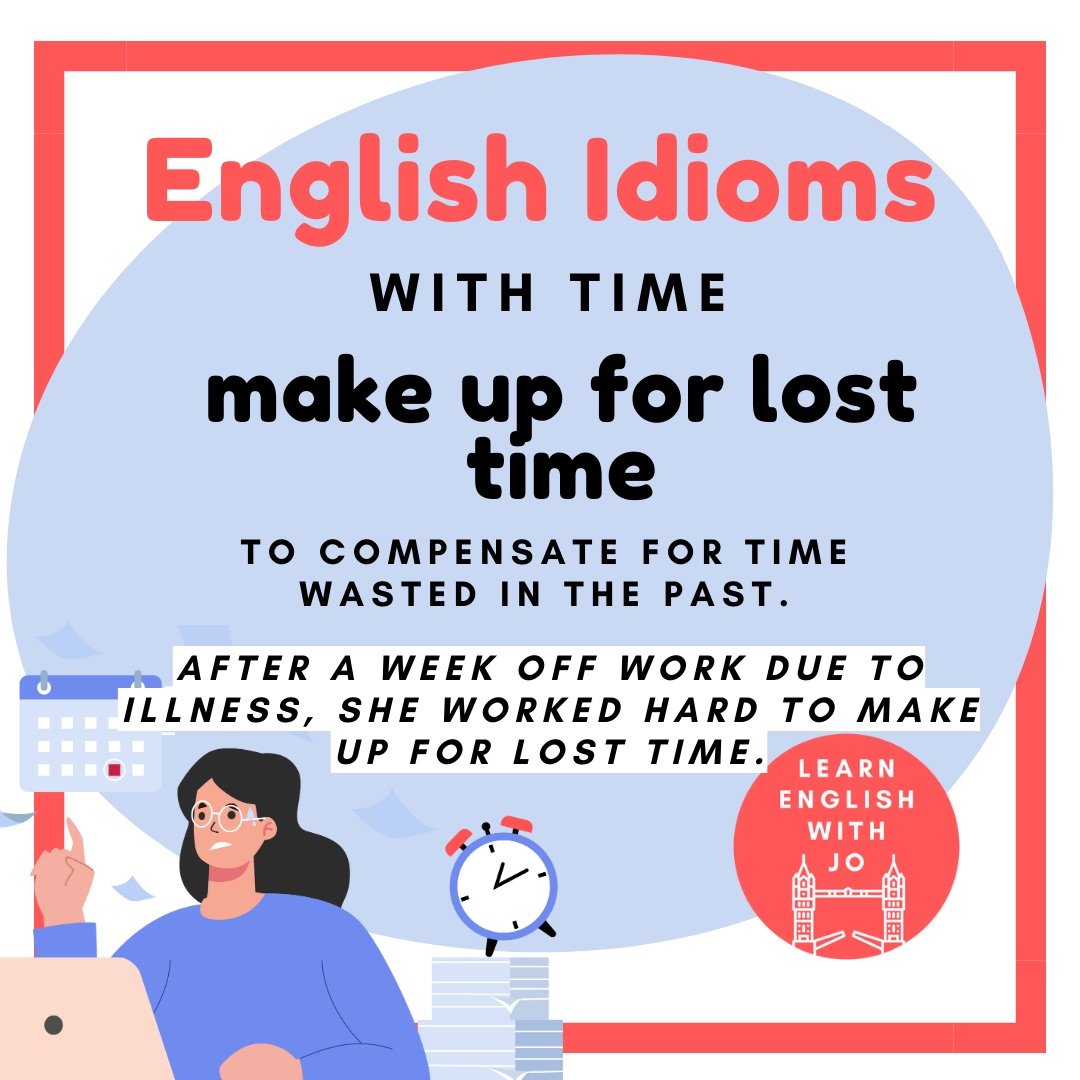English idioms about time.
Today, we're going to look at a selection of idioms that you can use when you’re talking about time in English. These idioms provide insights into how we perceive and value time in various situations and will give you new ways to express yourself in English.
To call time on something
When someone decides to ‘call time on something,’ they are putting an end to a specific situation or activity. This phrase often indicates that a decision has been made to stop or conclude a particular event or project.
Example sentence
After many years in the company, I've decided to call time on my career and retire.
In the nick of time
Imagine a situation where you narrowly avoid a disaster because you arrived just in time. This is when the idiom ‘in the nick of time’ is most appropriate. It means that you managed to do something or arrive somewhere at the very last moment before it was too late. Example sentence
I finished my assignment in the nick of time before the deadline.
Time will tell
‘Time will tell’ is a phrase used when the outcome of a situation or decision is uncertain, and only time can reveal what will happen. This idiom acknowledges that, over time, the truth or consequences will become clear.
Example sentence
We can't predict the success of our new product, but time will tell.
Behind the times
Being ‘behind the times’ means that someone or something is not up to date with current trends, technology, or knowledge. It suggests that a person or thing is out of touch with the modern world.
Example sentence
His fashion choices are always so outdated; he's really behind the times.
Make up for lost time
When you ‘make up for lost time,’ you're trying to compensate for time that has been wasted or lost in the past. This idiom is often used when someone has been away, absent, or unproductive and now wishes to catch up on what they missed.
Example sentence
I missed a week of work due to illness, so I need to make up for lost time by working extra hours.
Once in a blue moon
A ‘blue moon’ refers to a second full moon that occurs within a calendar month, which is a relatively rare event. So, when something happens ‘once in a blue moon,’ it means that it occurs very infrequently or rarely.
Example sentence
Getting a promotion at work is like finding a four-leaf clover; it happens once in a blue moon.
On the dot
Being punctual and precise is captured by the idiom ‘on the dot.’ When something is done ‘on the dot,’ it means that it is exactly at the appointed time or without any delay.
Example sentence
The meeting starts at 2:30 PM, so please be there on the dot.
At the drop of a hat
If someone is ready to do something ‘at the drop of a hat,’ it means they are prepared to act quickly and without hesitation. This idiom suggests a willingness to respond to a situation immediately.
Example sentence
He's always willing to help at the drop of a hat; he's such a reliable friend.
If you’d like to book a trial English conversation class with me then check have a look at my profile on italki or drop me a message.
Sign up to italki and you will receive $10 italki credits in your student wallet within 48 hours of making you first purchase
In the long run
‘In the long run’ refers to a time period that extends into the future. It is used when discussing the eventual consequences or benefits of an action or decision over an extended period of time.
Example sentence
Exercising regularly might be tough, but it's good for your health in the long run.







